Cheers to our closer ties — but don’t forget the war, warns Chinese envoy
Xiao Qian says nuclear subs are a waste of taxpayers’ money, before warning Australia to ‘be careful’ of Japan in an extraordinary rebuke of his counterpart.
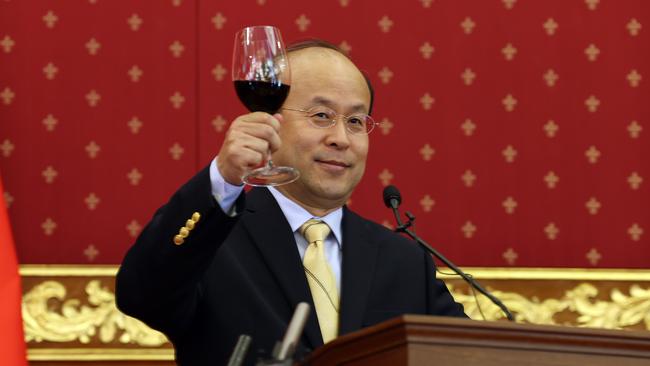
Beijing’s top diplomat in Australia has attacked the AUKUS agreement for treating China as a “potential threat or adversary” while launching an extraordinary warning on the return of Japanese militarism as a threat to regional security, invoking the bombing of Darwin in World War II.
Ambassador Xiao Qian delivered a scathing rebuke of the Japanese ambassador to Australia, Shingo Yamagami, who said Australia should be “vigilant” after an apparent thaw in relations with China because Beijing’s new tone was yet to be matched with more constructive behaviour.
“I’m afraid our colleague from Japan is not doing his job,” Mr Xiao said at a function at the Chinese embassy in Canberra held to celebrate the new year.
“In the Second World War, Japan invaded Australia, bombed Darwin, killed Australians and treated Australian POWs in a way that was humanly unacceptable. Look at the video, YouTube, the pictures, the photos,” he said.
“The Japanese government has not apologised for that up to today. If they do not apologise (it) means they don’t accept it’s wrong and they might repeat the history,” Mr Xiao added.
“There are a handful of people, a handful of political forces in that country, who are taking a twisted way of looking at history. A twisted way of looking at China – a twisted way of looking at the relationship between China and Australia that is not constructive, that is not helpful.
“I hope that the Australian government and Australian people would have a clear mind of what happened and be careful about what might happen in the future. Once somebody threatens you, he might threaten you again.”
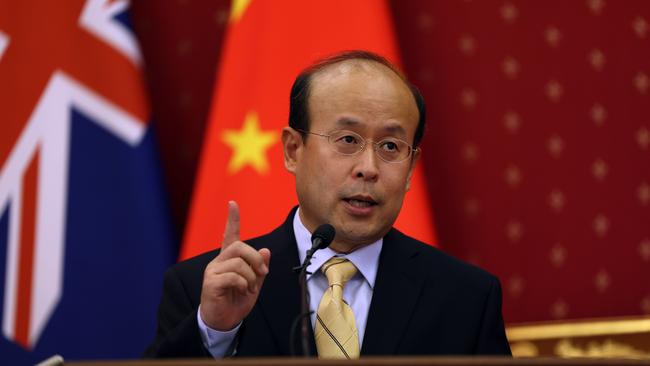
Mr Yamagami, who made his original comments in an interview with The Australian, said on Tuesday that everyone knew Japan was a peace-loving, rules-abiding country so what took place more than 80 years ago was not at issue.
“What is at issue here is how to deal with coercion, intimidation moving throughout the region. Here, Australia and Japan are in total sync,” he told ABC TV.
“We are working together to uphold a rules-based order both regionally and globally.”
Japan made an unconditional surrender at the end of World War II and is now a quasi-ally of Australia. Both countries are members of the Quad partnership, alongside India and the US.
After a 90-minute press conference, Mr Xiao toasted the room with a Barossa Valley shiraz – a 2017 Chateau Tanunda – as he declared the bilateral relationship with Australia was “at a critical stage of turnaround”.
But as Defence Minister and Deputy Prime Minister Richard Marles prepares to hand down the government’s defence strategic review in March and unveil the government’s plan to purchase nuclear-powered submarines from the US or the UK, Mr Xiao said AUKUS was not a good idea for any of the countries involved.
“I don’t think it’s constructive, I don’t think it’s helpful, especially when you’re targeting China as a potential threat or adversary,” the ambassador said.
“China is not seeking to be an enemy with the United States, neither are we of the United Kingdom, nor are we of Australia so there’s no reason for the three countries to stand together to work on something that’s targeting China as a threat.
“The submarine purchase under AUKUS is an even worse idea,” Mr Xiao said.
“It’s such a complicated project and if it happens that’s not going to serve the interest of Australia. It will serve interests of other countries but not in the interests of Australia. In this country, if you spend money to purchase the nuclear submarines it’s going to be an unnecessary consumption of Australian taxpayers’ money.” Mr Xiao said the consequences of Australia purchasing nuclear-powered submarines was “even more serious” as it set a “bad example” of a nuclear-armed state such as the US or the UK transmitting nuclear material to a non-nuclear state like Australia.
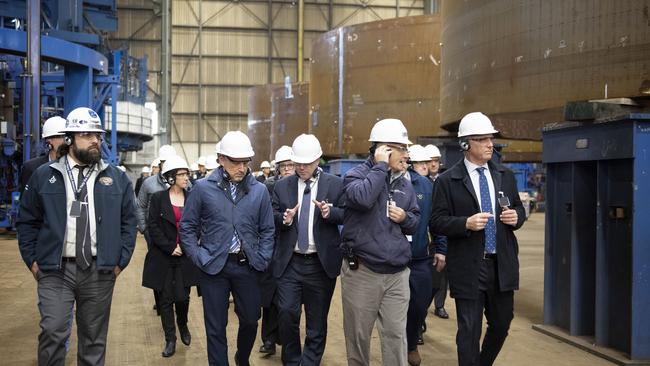
Mr Marles last month lauded AUKUS as a “shared mission between our three countries to work together to pursue advanced military capability”.
Following a tumultuous few years for the bilateral trade relationship and China’s $20bn economic coercion campaign against Australia that came after the Morrison government called for an inquiry into the origins of Covid-19, Mr Xiao said improved political ties and a “stabilising” relationship would help to solve disputes.
He endorsed resolutions being reached bilaterally instead of through the World Trade Organisation, where Australia has lodged complaints against China’s tariffs on Australian wine and barley.
“I would hope that as we are improving relations that you have more encouragement to the Chinese economy, to the Chinese customers to come back for a stronger appetite for Australian products,” Mr Xiao said.
As both Australia and China talk up the need for “goodwill”, Mr Xiao also said Chinese officials were attempting to give diplomats “easier access” to detained Australians Cheng Lei and Yang Hengjun.
In a possible sign of hope for the journalist and writer, Mr Xiao said: “I hope a solution will come as soon as possible, but we need to respect the legal procedure.”
There were also attempts for family members to talk with them, he said.
Amid a thawing of tensions between Beijing and Canberra, Mr Xiao said the Albanese government’s May election provided an opportunity to “reset” the bilateral relationship.
He said the “successful” bilateral meeting between Anthony Albanese and Xi Jinping on the sidelines of the G20 in November – the first between an Australian prime minister and Mr Xi since 2016 – set up the direction of the relationship after a “difficult” time.


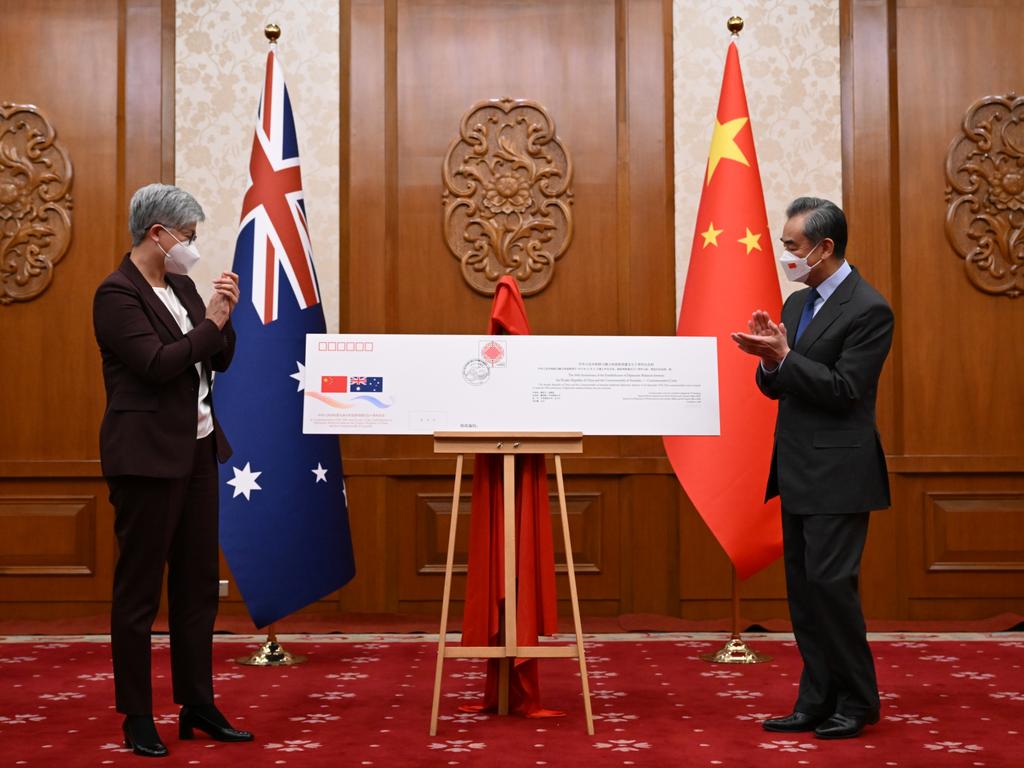
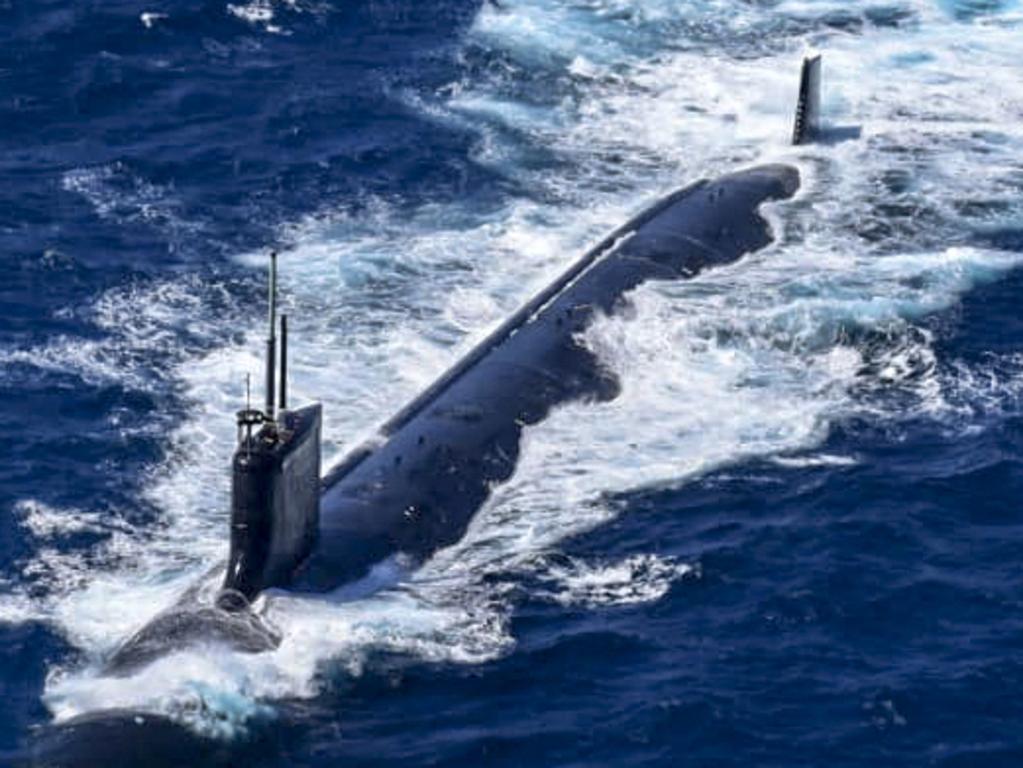
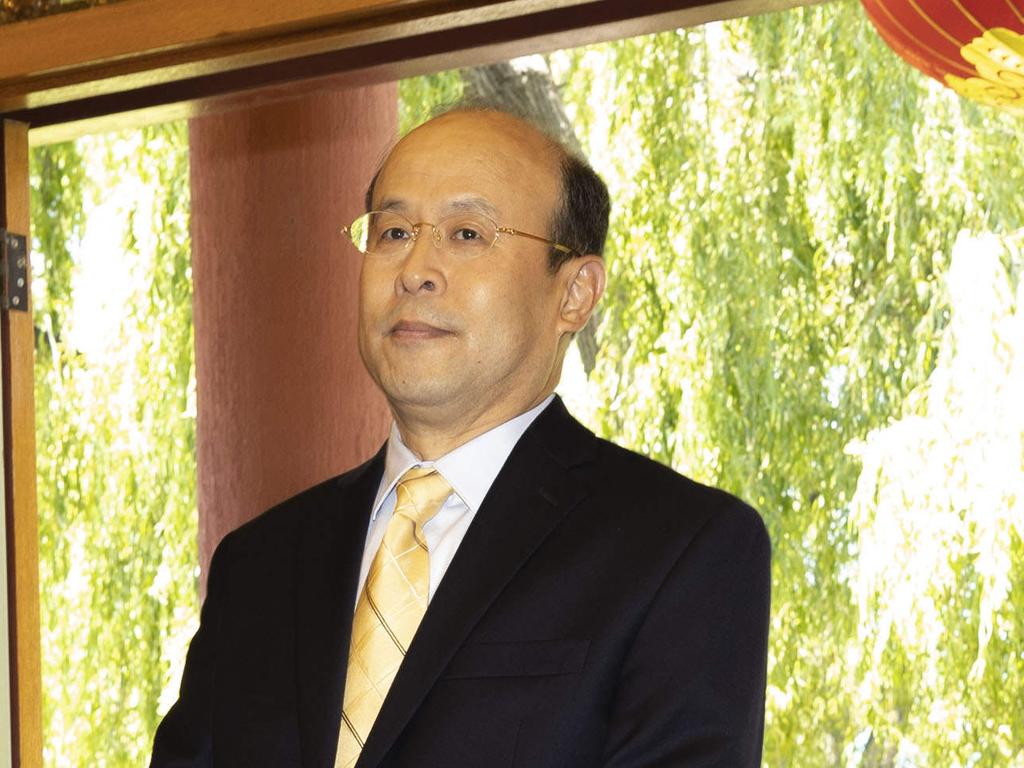
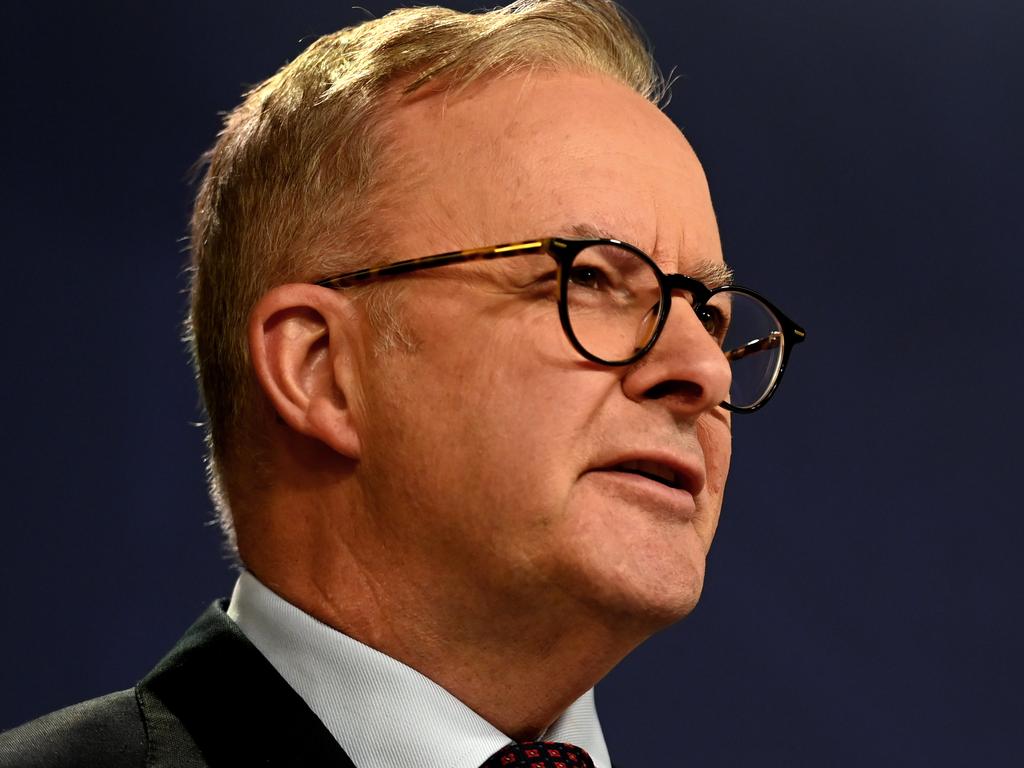


To join the conversation, please log in. Don't have an account? Register
Join the conversation, you are commenting as Logout